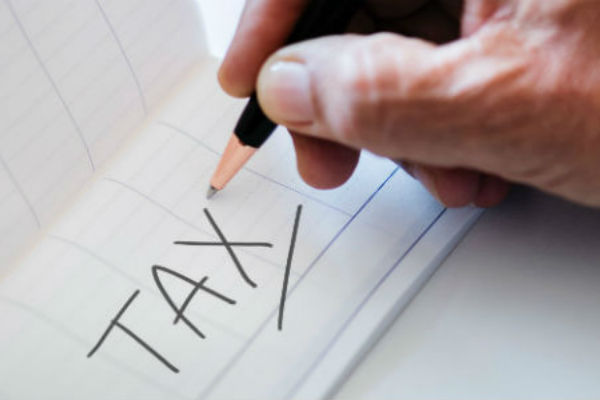As the end of financial year approaches again, we want to share with you 22 smart ways to save big money and help you minimise your tax liability. After all, we wouldn’t want you to be paying money to the tax dept that should really be in your back pocket!
This list applies to both personal tax savings and business tax savings. Read through the suggested ways to save, and then book a time to discuss your options and potential tax savings with a Think Big tax specialist. Contact us here.
Deductions — lower your tax liability
1. Instant asset write-offs. Small and medium-sized businesses may be eligible for instant asset write-offs up to $150k. The threshold on the Instant Write-off Scheme was boosted and it can be used multiple times for multiple assets.
2. Write off bad debts. Old and unrecoverable debts can get you a tax deduction or the full amount in the year you decide to write-off the debt. There is some due diligence required here, so make sure you’ve met the requirements before claiming this.
3. Write off inventory. Your business will be entitled to a tax deduction if you write off inventory that is obsolete, slow-moving, or has been subject to theft.
4. Donate unused inventory. Donate unsold or unused inventory and get tax deductions instead of spending cash on storage. Company donations of money, supplies, and property are all considered deductible expenses. Note that donations of goods greater than $500 may be subject to specific rules.
5. Pay for certain expenses before June 30. If you have spare cash available, this can help you get your tax break back from the ATO earlier. Whereas expenses paid in July may leave you waiting more than 12 months for the return.
6. Prepay interest on investment loans. Be careful though – not all expenses qualify for a tax deduction in advance.
7. Prepay interest on investment property. Make sure to get in early with the bank if your situation permits you to bring forward this deduction.
8. Claim work-related expenses. This year the ATO is focusing on work-related expenses. If you are planning to claim expenses for things like a home office, mobile phone, tools and equipment, etc, make sure you claim only eligible expenses and have the paperwork to back them up.
9. Insure your income. Claim the premiums paid for your income protection insurance as a tax deduction. It’s important to note that you can only claim the portion of the premium that covers you for loss of income, not for any benefits of a capital nature. Premiums for other personal insurance covers such as life, critical care, or trauma cannot be claimed. You also can’t claim deductions for premiums paid from your superannuation contributions, if your policy is held in your fund.
10. Pre-pay expenses. Review your expenses to determine if any of your 2020 expenses (i.e. rent, insurance or subscriptions) could be prepaid. As a Small Business Entity (SBE) you can get a tax deduction this financial year for expenses you prepay relating to the next financial year as long as the prepayment was made prior to June 2020 and it is not for a period of more than 12 months. To qualify as a small business entity (SBE), you need to be operating a business and have aggregated turnover of less than $10,000,000.
11. Use the income tax offset. If your small business is unincorporated, you may be eligible for the small business income tax offset. This can save you up to $1000 if your revenue is under $5 million. The offset is current 8% of tax payable on your business income but is set to increase to 16% by 2027.
12. Deduct home office expenses (for home-based businesses). Possible deductions may include mortgage interest or rent, council rates, land taxes, home insurance premiums, running expenses, etc. Again, make sure you are only claiming eligible expenses and have your backup paperwork on hand.
13. Track and deduct auto expenses. You can deduct auto expenses when used for business. To take advantage of this deduction, you need to track mileage and identify the percentage that is attributable to your business.
14. Track your carryover tax deductions. Capital losses, net operating losses, home office deductions, large charitable donations. These are all examples of types of deductions which may be carried forward to a future year. Make a point to track and record these deductions so you remember them the following year.
15. Rental property tax deductions. If you invest in real estate, you can offset the taxes on your profits with rental property tax deductions while building cash flow at the same time.
16. File taxes on time. Avoid late penalties by making sure your tax assessments are in before the due date!
Super contributions — don’t waste the limits
June 30 is not just about deductions for expenses. This is also a good time to review your superannuation contributions to date and take advantage of the annual caps.
17. Pay your supers on time. Any super payment made on behalf of an employee must be done and paid before June 30 in order to qualify for a deduction. Super must be paid to staff 28 days after the end of each quarter. If you miss that deadline, it is no longer tax deductible.
18. Add to your super fund. Reduce your personal taxable income through voluntary super fund contributions.
19. Salary sacrifice or concessional contributions. For these types of tax-deductible contributions, the annual limit is $25,000 per annum, regardless of age. If you’re an employee, this limit covers both employer super guarantee and salary sacrifice contributions. How much has your fund received in contributions this year? Do you need to review and adjust your current arrangements?
20. After-tax contributions. Anyone under 65 (working or retired) can contribute $100k each year to super as after-tax or non-concessional contributions. You can also bring forward the limit for the next two years and contribute $300,000 in a single year. Make sure you check your total super balance to ensure your extra contributions do not exceed the general balance transfer cap.
21. One final point on super contributions. The total contributed is based on how much is received by your fund, not when you sent it to the fund. Planning ahead is crucial.
Get in early to save money at tax time this year
These are just some of the ways to manage how your money is taxed. Other options may be available, depending on your circumstances. Your Think Big advisor can help you achieve what is best for you this financial year. But please don’t leave it too late!
22. Our final tip is to book in with a Think Big Tax Specialist, we can review your specific circumstances and structure to ensure you avoid unnecessary taxes and get the most out of your money, now and long-term. Contact us now to find out how we can help you, or your business, this end of financial year.
This represents general information only. Before making any financial or investment decisions, we recommend you consult a financial planner to take into account your personal investment objectives, financial situation and individual needs. Speak with a tax accounting specialist (such as TBFG) who is up-to-date with applicable deductions, tax law, and business structuring to get you the biggest return on your EOFY tax assessment.










